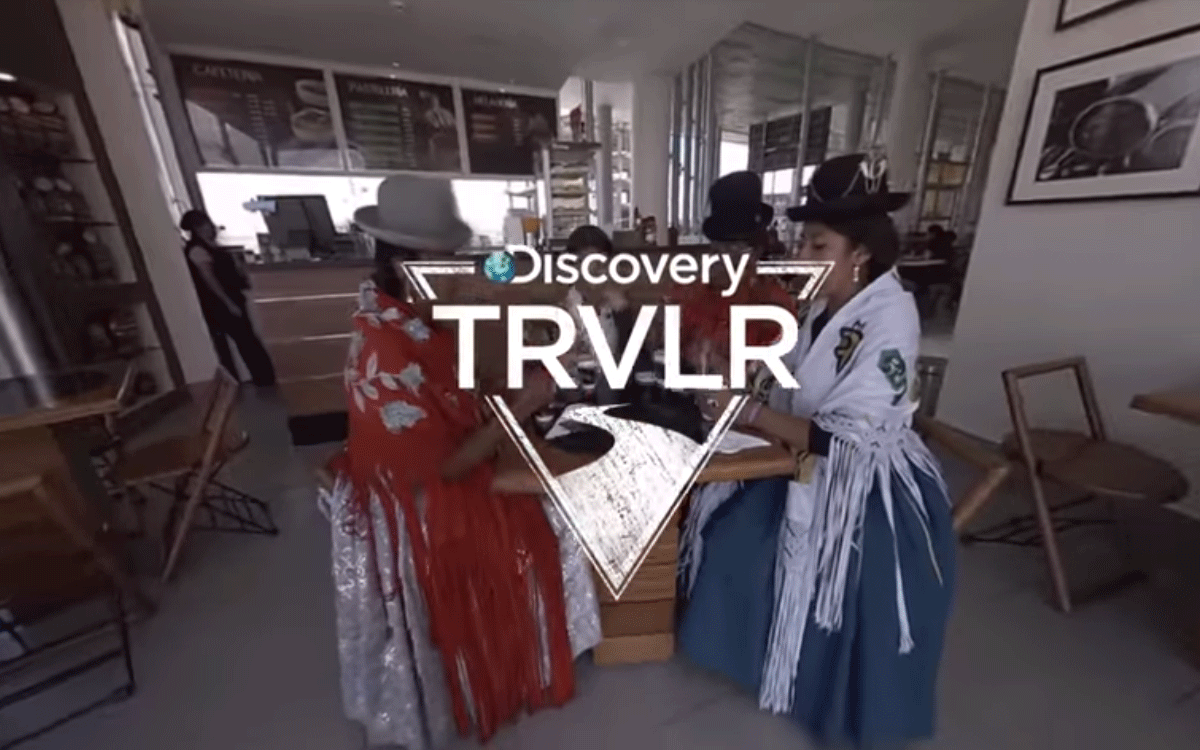 EMERGING TECH
EMERGING TECH
 EMERGING TECH
EMERGING TECH
 EMERGING TECH
EMERGING TECH
Discovery Communications Inc. and Google LLC have teamed up to use the magic of immersive virtual reality technology to bring more people to places they have never been before through a 38-episode travel documentary.
The series, announced Wednesday by the Discovery VR and Google VR team, will launch on Friday, Nov. 3, exclusively on YouTube and DiscoveryVR.com and on the Discovery VR app.
Virtual reality provides opportunities to immerse viewers in scenes in a way that 2-D television screens cannot. Users of VR can turn their heads, see in 360-degrees during a presentation and even experience surround sound in a way that actually surrounds. As a result, documentary markers have begun to look to VR as a way to capture and relate stories in a way that has not been possible before.
The series, dubbed “Discovery TRVLR,” will explore what the series calls “mind-blowing rituals, obscure traditions and life-threatening quests that define a variety of cultures” and will cover continents and regions across the world including North America, South America, Asia, Australia, Africa, Antarctica and Europe.
Rebecca Howard, senior vice president of emerging platforms and partnerships at Discovery VR called Discovery TRVLR “our most ambitious endeavor to date.”
Each chapter of the series, which will surround content engaging a particular continent and its peoples, will be bookended with a sunrise and end with a sunset. As for the episodes themselves, Discovery TRVLR will explore different cultures and communities with titles such as The Guru, the Renegade, the Entertainer and the Explorer.
Writer and director Addison O’Dea and experience studio Here Be Dragons worked on episodes filmed in North America, South America, Asia, Africa, Australia and Europe. Director Barry Pousman and production studio Yes Please Thank You worked on episodes filmed in Antarctica. Emmy Award-winner Saschka Unseld served as Creative Producer for the series.
The extent and total breadth of this project makes it one of the biggest VR projects to date. “Discovery’s viewers look to us for innovation and expect to be taken places that satisfy their desire for exploration and adventure,” Howard said.
Discovery Communications will build on its long history of adopting new and innovative technologies to bring this sort of content to viewers. The company said it now offers more than 160 experiences across different media and devices.
The Discovery VR app was launched in 2015 and has accrued 4.3 million downloads with over 123 million organic views to date. Soon after that 2015 launch, Discovery VR also became one of the first content creators to terrify and excite viewers with 360-degree video close-ups of sharks – since 2015, “Shark Week” has never quite been the same.
The VR industry is expected to reach approximately $60 billion worldwide by 2021, according to a report from Allied Business Intelligence Research Inc. However, a lack of content and expensive devices has hampered its near-term growth somewhat.
Google’s role in partnering with Discovery to help produce this content signals the company’s role as a major part of the VR industry. Google has been working to make VR equipment cheaper and increase its mass market appeal. This happened first with the 2014 release of Google Cardboard, a VR viewer literally crafted out of cardboard and lenses, followed by the 2016 release of Google’s mobile VR headset Daydream View with a temptingly low price of $99.
Discovery TRVLR is accessible across numerous devices, including Cardboard and Daydream View as well as with Android and iOS phones.
Support our mission to keep content open and free by engaging with theCUBE community. Join theCUBE’s Alumni Trust Network, where technology leaders connect, share intelligence and create opportunities.
Founded by tech visionaries John Furrier and Dave Vellante, SiliconANGLE Media has built a dynamic ecosystem of industry-leading digital media brands that reach 15+ million elite tech professionals. Our new proprietary theCUBE AI Video Cloud is breaking ground in audience interaction, leveraging theCUBEai.com neural network to help technology companies make data-driven decisions and stay at the forefront of industry conversations.